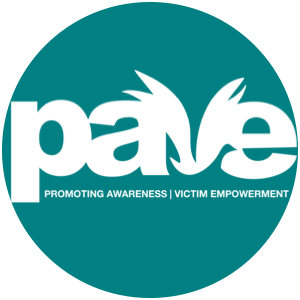What Does Healing Look Like?
Confused. Frustrated. Alone. These are all completely normal emotions that many individuals experience during the aftermath of a sexual assault. It can be overwhelmingly challenging to decide what to do or how to move forward with life. When I was beginning my process of healing from my assault, I often asked myself: What does healing look like?
After much pondering and a prolonged period of confusion, I began to tackle this question, its nuances, and what exactly healing looked like for me. Let’s get one thing clear: The healing process is neither linear nor universal. The same methods that work for someone won’t necessarily work for someone else, and someone’s journey in healing doesn’t always go in a straight line.
For a lot of individuals, therapy is an excellent avenue for their healing process. Talking with a professional has been proven to help articulate emotions and work through triggers in your everyday life. Therapy can also help you reclaim your sexual health and improve your physical well-being.
On the other hand, there are plenty of reasons why someone wouldn’t seek therapy, including not being ready for therapy quite yet, lack of access to therapy, or simply the fact that therapy isn’t the way that they choose to heal, and that’s perfectly fine as well. Other paths to healing could be equally as beneficial. Examples of this could be doing work in your everyday life that makes you feel empowered, building and maintaining support systems, and engaging in body-focused trauma work such as yoga or meditation are all examples of healing.
One of the most important steps in the healing process is knowing when to ask for help. Healing isn’t something you should feel you need to do on your own. Leaning on your support systems isn’t a sign of weakness or a burden. As Lily Collins wrote, “Asking for help is never a sign of weakness. It's one of the bravest things you can do. And it can save your life.”
It is also important to note that there is no timeline for healing. Don’t feel like you need to be rushed or disappointed when you don’t reach your desired goals. Any progress is still progress. And it doesn’t even need to be linear. For a lot of people, their healing process has ups and downs, as with anything in life. Taking a step back doesn’t mean you’re failing. Obstacles are a part of life and sometimes those challenges get in the way of healing, and that’s perfectly natural. The important part is knowing when to begin healing again and taking those steps in the right direction. You should also acknowledge that while healing is a very personal experience, it doesn’t mean you need to do it alone. Building and leaning on your support systems can be extremely beneficial in your healing process.
Another way of thinking about healing is to think about it as a practice, not a task. Healing from your sexual assault, or any trauma, isn’t always complete and definite, and we must learn to incorporate our healing strategies into our everyday lives and choose to continue to practice healing. However, it is also important to distinguish our healing strategies from our coping strategies and to not conflate the two. While our coping strategies may help us handle our trauma in the short term, certain coping strategies can often be unhealthy and counterintuitive to the healing process. This can include dependence on drugs/alcohol or prolonged periods of shutting out support systems.
Even if taking active steps feels like it’s too much, that’s ok. Just even acknowledging your trauma still counts towards your healing process. No step is too insignificant. Healing can take place anytime between immediately after the incident and literally anytime afterward, even if that means years from the time of the assault.
Healing doesn’t look the same way or mean the same thing to everyone, and it’s important to acknowledge your own victories and understand what you need on an individual level.
I’m still figuring out what healing looks like for myself. There are days when I feel completely helpless from my trauma, and there are others when I feel like I’ve made great progress. Identify what you want to get from your healing process. Find whatever works for you. Find whatever you're comfortable with.
